In co-operation with Babbel.se
How do you learn a language before travelling? There are many different ways, of course. We have tested the Babbel app, which offers an educational, fun and easy way to learn. We also offer our other tips for learning a language while travelling. Maybe you have some more good tips?
Innehållsförteckning
Knowing languages is key
Language is key to travelling. When we were recently in north-east Germany, we were surprised that very few people could speak English. We usually managed to communicate anyway, in a mixture of simple English and German words, but of course communication becomes a bit more limited. Above all, we thought about their situation - do they ever dare to travel to countries other than German-speaking countries?
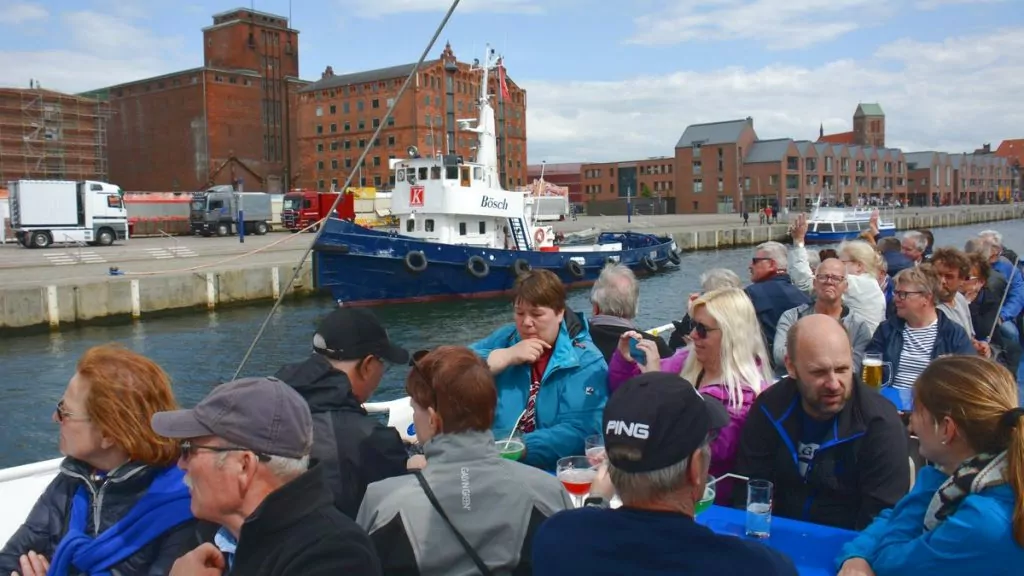
Learning a new language
Our experience is that in most destinations you can manage in English (more or less well), but in some cases you would get more out of the trip if you could speak the local language. I (Helena) studied French in secondary school, Spanish in high school and Icelandic and Danish at university. Peter and I have taken evening classes in Russian together.
The only one of these languages I know talk is Icelandic, but my experience is that even a little knowledge of a language goes a long way. In Russia, it helped enormously when we could spell out the names of the stations in the metro, and in France, it helped that I understood the days of the week when we had to make an appointment to repair the motorhome. For example.

Appen Babbel
We have now tested the app Babble, which can be used either on a computer or on a mobile phone. You simply create an account, and then choose from 13 different languages. Inspired by our recent trip to Germany, I chose German and started at the basic level.
Learning a language in this way seemed, at least initially, quite simple. A number of simple phrases are read out and shown in text, and you have to combine this with the correct phrase in Swedish. Then the same phrases are repeated in a different order, and after a while you have to read them out yourself. If you get the pronunciation right, there is a green tick (instead of a red cross) and you can move on. Simple, and actually quite fun!

The price for Babbel is €99 for one month, but only €50 per month if you sign up for a 12-month subscription.
Which language(s) would you like to learn?
I have a fondness for French, and would love to learn to speak French. While travelling in Southern Europe, we have also realised that it would be useful to know some Italian or a few more Spanish words. Spanish is also a good choice if you ever want to visit and travel around South America.
Personally, I feel quite confident with English, but if I were unsure about English, I would probably choose one of the following in the first place English course. In our experience, English works very well in both Asia and Africa, and mostly well in Europe.

More tips for learning a language before travelling
If you really want to learn a language, you usually have to practise quite intensively, and in several ways. Here are some more tips for learning a new language:
- Read children's books in the language - I did this when I was learning Icelandic. I chose children's books that I knew (e.g. Emil in Lönneberga) and it worked well for me!
- Watching films in the language - A good way to listen and practice is to watch a film in the language you want to learn. Depending on your level, you can choose Swedish text, text in that language or no text at all.
- Use post it notes - When we practised Russian, we put post it notes with Russian words all over the house. It was a good way to repeatedly see the words and be reminded of them.
- Challenge yourself to learn a few words a day - How many words can you manage per day? Five, or maybe ten? Set a goal that is challenging, but not impossible.
- Travel to the country where the language is spoken - This is perhaps the most obvious tip, but also one of the best. Using the language and practising on the spot beats most things.
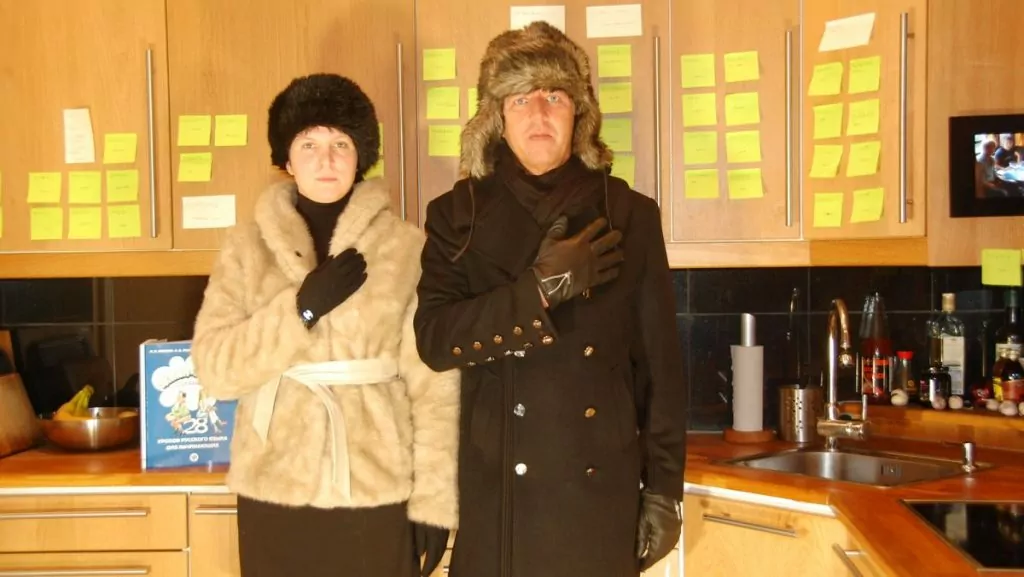

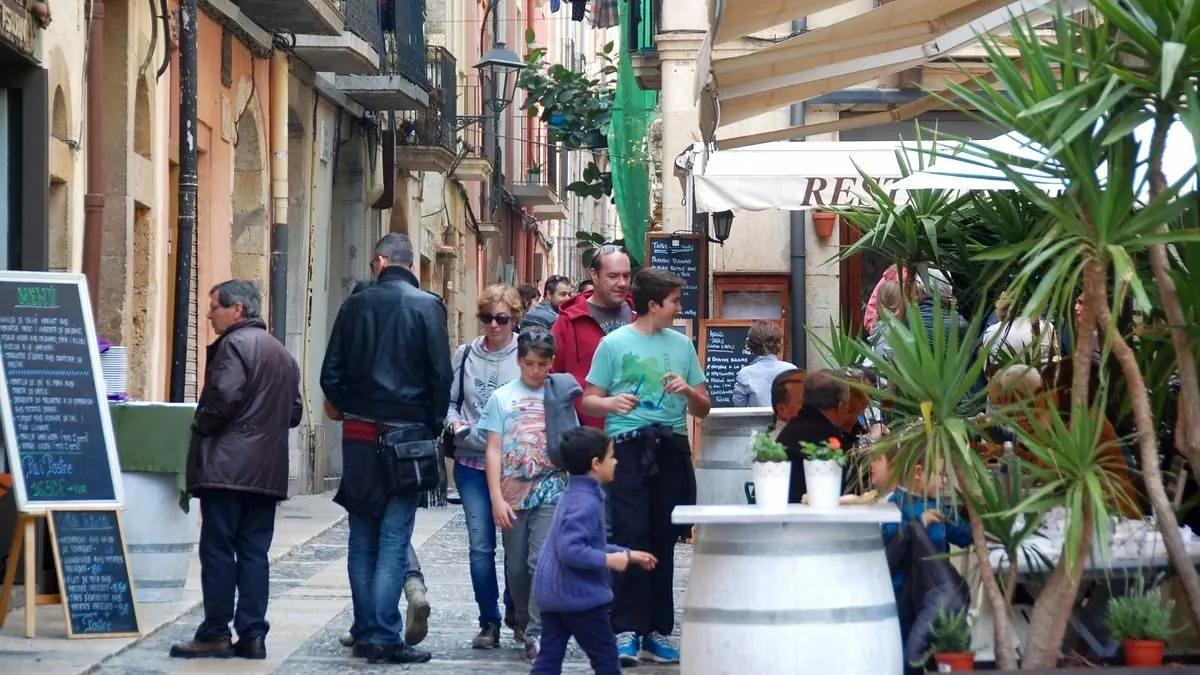







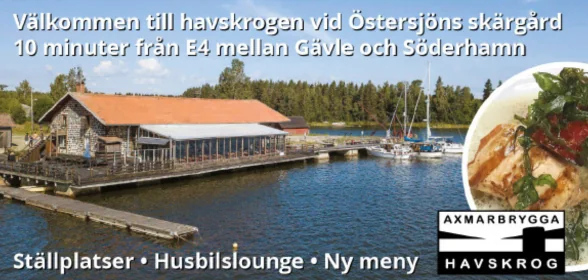
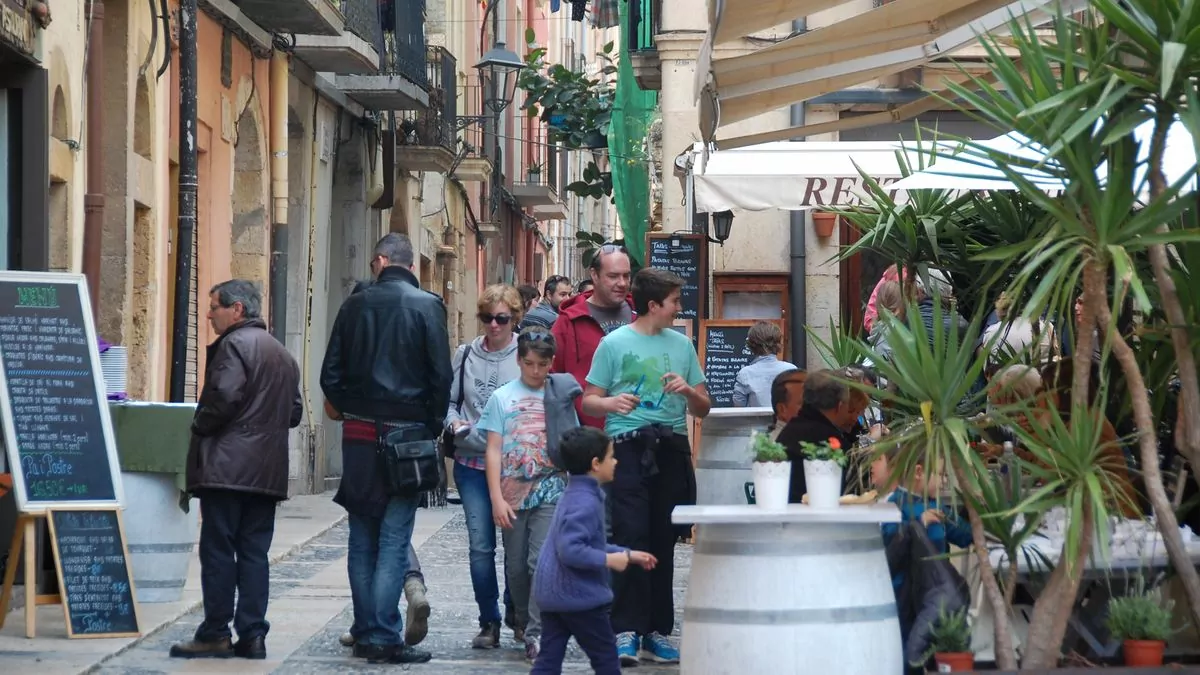
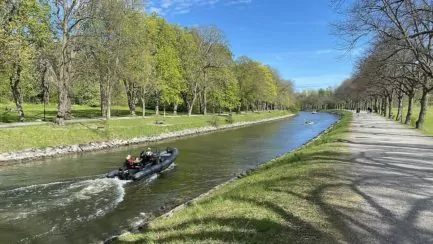

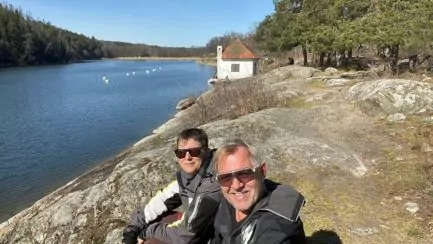
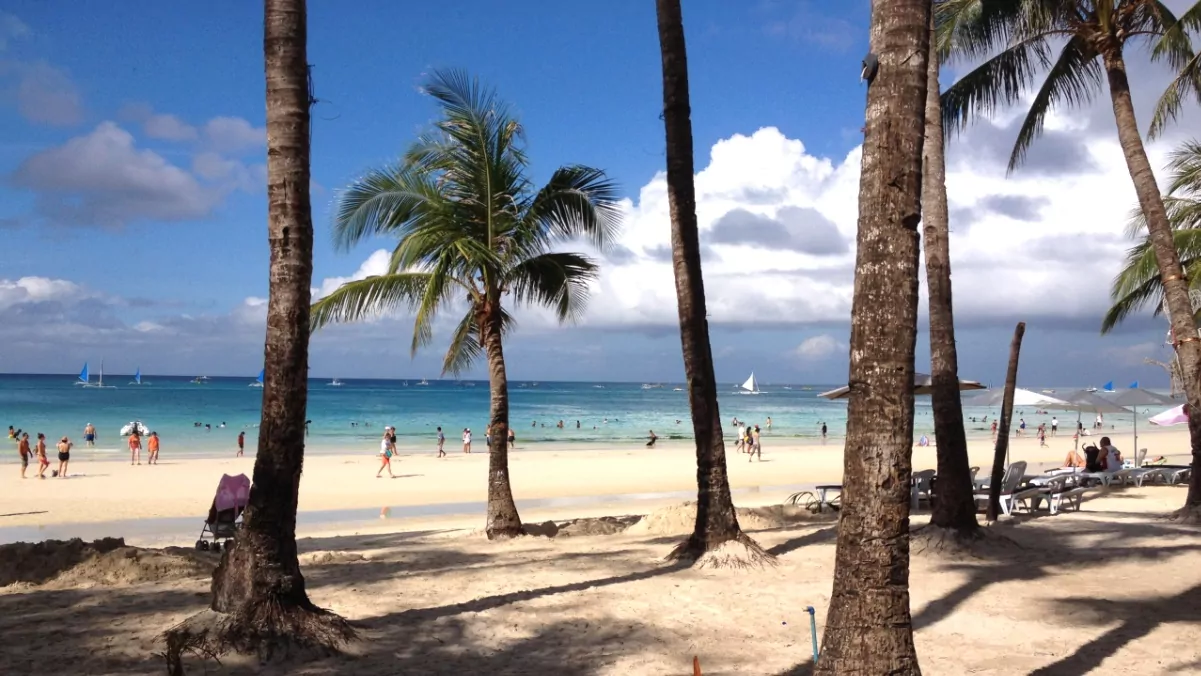



Johnny Friskilä says:
Hehe, yes, you certainly look a bit winter Russian in that picture. Good luck with the language exercises!
15 June 2019 - 8:16
Helena says:
Haha, yes, right? Sometimes you have to go all in 😉
15 June 2019 - 9:35
Ditte says:
I think "Babbel" is great. I have tried it for a couple of years and mostly focused on Spanish, about 30 minutes three days a week and sometimes every day. And it has given good results. The fact that I spend a lot of time in Spain and am surrounded by the language makes it easier. I have also tried to keep some Chinese going with "Babbel".
I've mostly used a Mac because I find typing on my mobile phone very clumsy.
I can also recommend the app "Duolingo" where you can, for example, practise one language and then go via English and you can practise two languages.
Language is the key to connecting with people and it's also a lot of fun.
Have also learnt some Italian words and phrases via Babbel just to...
The cost of downloading the programme is also marginal.
15 June 2019 - 9:09
Helena says:
Glad you used Babbel and have such good experiences! It feels like a good way to learn, and of course best in combination with practising on site! 🙂
15 June 2019 - 9:39
Monet says:
What great tips! I would like to add that it is not a bad idea to take courses at home as well and try to get native teachers for pronunciation which is just as important as grammar. As you know, we lived in France for ten years and I have a good command of French. Nevertheless, I often left the television on just to have the language around me. I have Nordstedt's encyclopaedias in German, French, English and Italian as apps and there are opportunities for self-training and learning new words, quizzes with or without time. Also read simple newspapers, such as motoring or women's magazines and keep this type of dictionary close by and be consistent in looking up words you don't understand. In adulthood, it is difficult to learn a new language. We were surrounded by Swedes who were initially very enthusiastic about it, but anyone who hadn't studied French when they were young had to give up after a while - it was simply too difficult. Personally, I don't travel to countries where I don't know the language - it's such a big part of my experience of the country that I can't be without it. Luckily, I know the major European languages and with English also visit the USA with great pleasure. In countries like Croatia and Greece, I feel like a perpetual tourist!
15 June 2019 - 9:13
Helena says:
Thanks for more great tips Monet! 🙂 I agree that it is good to hear and surround yourself with the language you want to learn! When I lived in Iceland it went well because I heard the language all the time. But it gets more difficult with age. When I learnt Icelandic, I was 17 and it was still a bit easier to learn. I agree that languages give an extra dimension, but I'm too curious to limit myself to the countries where I know the languages 😉 (But of course you become more of a tourist when you don't know the language).
15 June 2019 - 9:46
Husisblogg says:
Imagine, everything is available online and in apps. You just have to find the right one. But this sounds like a nice evening read so I'll tell my owners to start "studying" languages.
Good luck with your studies.
15 June 2019 - 9:33
Helena says:
Yes, there are good and convenient tools today! 🙂
15 June 2019 - 9:47
Emma, Sol som sol? says:
Babbel, Duolingo, Memrise ... they are all good tools but of course they are not enough. I know that I have made a big mistake when I have been using the apps and that is that I have not spoken them out loud to myself. This means that I read OK but have difficulty expressing myself. Even though my pronunciation is apparently good (the Spanish say), I feel uncomfortable with the words in my mouth and stumble too easily. Especially on certain types of words: ayuntamiento, mantenimiento ...
Maybe I should take a book and sit and read it aloud!
How interesting that you know Icelandic1 It's not the first language you might think about learning. Was it difficult or easy? Does Swedish help or hinder? Or not at all?
15 June 2019 - 11:28
Helena says:
Your comment went to spam again Emma, how strange! And yes, there are several aspects to studying languages, and you may need to combine learning techniques. Sounds like you are good at Spanish anyway! 🙂 Icelandic is both easy and difficult. Easy because many words are similar to Swedish (so yes, you do benefit from Swedish!) and difficult because the grammar is much more complex. For example, they have four cases and conjugate verbs by person. In terms of pronunciation, it follows its rules very well and, for example, they always (without exception) emphasise the first syllable. Words like Helena and America are a bit different from what you are used to, but rules without exceptions are still good 😉.
16 June 2019 - 6:57
Britt-Marie Lundgren says:
After reading your post and positive comments, we got a kick in the arse and Lars has already downloaded Babbel to improve his English and I am going to start my Spanish studies (for probably the fourth time).
I hope the flight went today!????
15 June 2019 - 15:59
Helena says:
But wow, what fun! Good luck! And yes, today the flight went! 🙂
15 June 2019 - 21:49
Veiken says:
I have learnt from my mother how important it is to know languages. My mum (the one with HD across Europe) had a very sensible father. His daughter would be raised just like a boy. We're talking 20s. She spoke English, German, French and Esperanto. Not common in those days. I myself am comfortable with English and German. French somewhat helpful since I went to school in Switzerland - the French part!
Whatever people do - make sure you know a language other than Swedish. Language is the key to many things!
Bye! 🙂
15 June 2019 - 19:17
Helena says:
Wow, cool that your mum knew so many languages, and you too! I also think that multiple languages give perspective, somehow you "think" differently in different languages 😉.
15 June 2019 - 21:51
Steve says:
I focused on English and German at school, but I wish I had chosen a second language other than German. Like Italian (which is so beautiful) or Spanish. I don't even know if that option existed back then. It was in the 60's?
I continued to study English at university and it has been very useful to me. German, on the other hand, I have never felt like an asset.
Today there are so many new opportunities for language learning. Perhaps I would even have ventured into Greek, Greek lover that I am.
15 June 2019 - 19:20
Helena says:
Doubtful if it was possible to choose Spanish or Italian at that time? I would guess that it came later. A bit more fun when there are more options actually! 🙂
15 June 2019 - 21:52
Ruth i Virginia says:
Languages are fun. We started with German. English was added in the second year,
and the third year French, so the last two years of secondary school we studied three
language - and there was no choice! German easy due to fixed rules. English
easy, because it had looser rules. French hopeless for me!
My first job in the US was as a live-in maid for an elderly couple, who spoke English.
excellent English. Almost every week end, their 15-year-old grandson came, and he took great pleasure in correcting my English. Excellent start.
Lived in Indonesia for 2 1/2 years, where I learnt a lot of the "street language". Have mentioned before, that Bahasa Indonesia is a
artificial language.
My dear Don had a problem with language, but he didn't let it stand in his way.
He spoke to everyone, wherever we were. - We had problems in northern Sardinia - nobody spoke English or German, and our Italian was very limited.
If anyone wants to learn how to fight berserk, just watch! 🙂
15 June 2019 - 20:19
Helena says:
Reading three languages at once is quite a lot! One year I also studied three languages (English, French and Spanish) but then I opted out of French for art 😉 Some people find languages easier and others more difficult. Tough of Don not to let it become an obstacle!
15 June 2019 - 21:55
BP says:
Ditte also praises Babbel, which most people are probably familiar with. The thing about languages is that you have to practise the languages you've learnt/know, preferably daily, otherwise you forget quickly. I know! I was fluent in German and French once upon a time, but wouldn't conduct a "sensible" discussion in those languages today. English is a piece of cake. Spanish I understand quite a lot, but can only throw out single words, no complete sentences.
As for the Germans. Well, it hasn't gotten much better there - with English that is. In many tourist paradises where Germans like to travel, such as Gran Canaria, Tenerife and so on, the staff in restaurants/bars are fluent in German and only average in English. So Germans do not need to learn English as long as they are not travelling to England or the USA.
PS. What a nice and informative comment by Ruth:-) DS.
15 June 2019 - 20:51
Helena says:
I agree that you have to practise languages, they are a kind of perishable commodity. And I know what you mean about German! I experience the same thing here in Croatia. Many tourists are Germans and therefore a lot is in German (even though everyone speaks English as well).
15 June 2019 - 21:57
Lena - gott för själen says:
Hehe, the Germans and English yes. Have also reacted to the lack of knowledge in English. But this is the consequence when they, indeed, read English in school but, all films are dubbed. Then they don't get the natural training in everyday life that we get from childhood.
Luckily I have my own little German with me when I'm there 🙂 ).
Hug Lena
21 June 2019 - 8:41